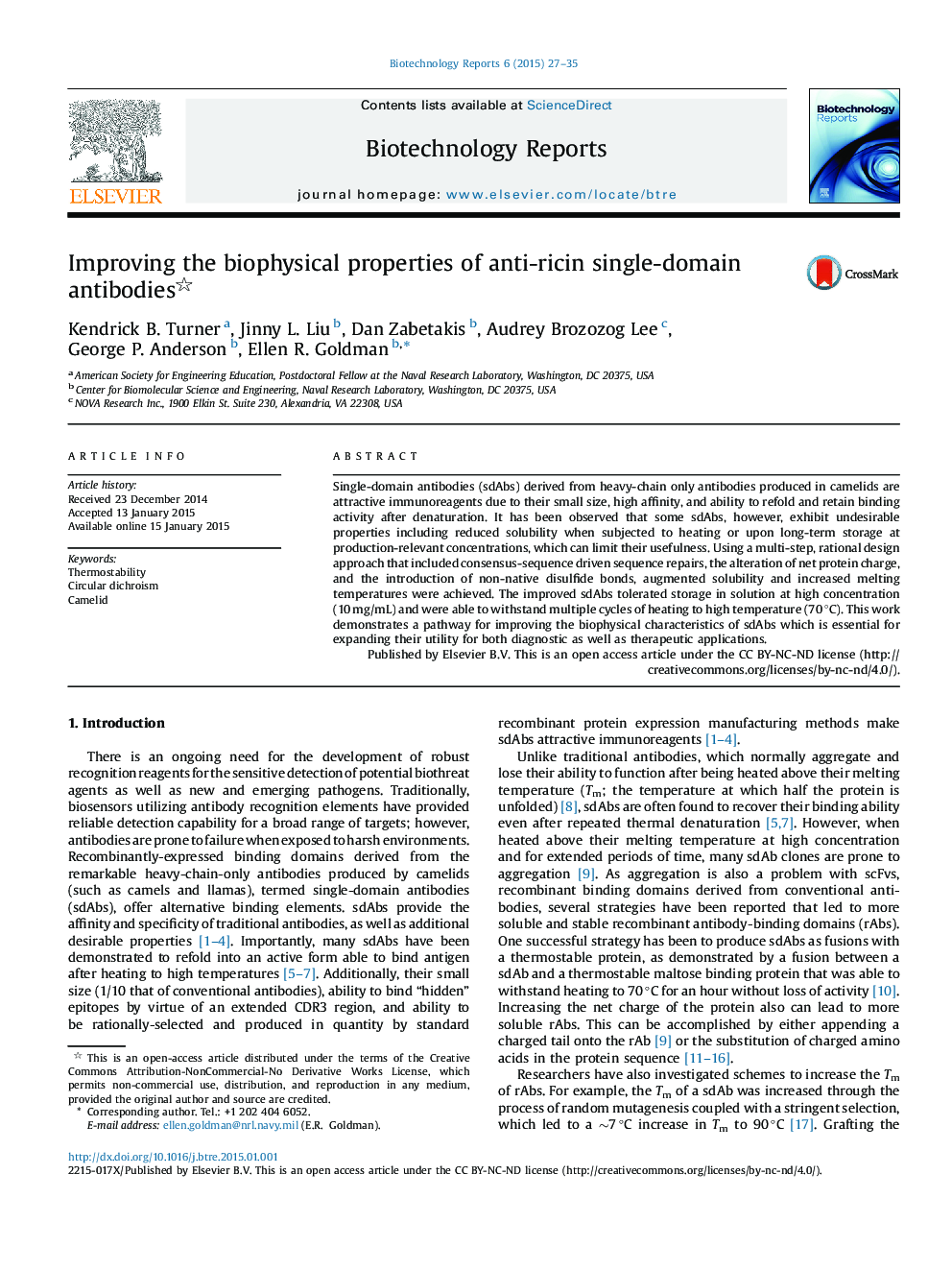| Article ID | Journal | Published Year | Pages | File Type |
|---|---|---|---|---|
| 870629 | Biotechnology Reports | 2015 | 9 Pages |
Single-domain antibodies (sdAbs) derived from heavy-chain only antibodies produced in camelids are attractive immunoreagents due to their small size, high affinity, and ability to refold and retain binding activity after denaturation. It has been observed that some sdAbs, however, exhibit undesirable properties including reduced solubility when subjected to heating or upon long-term storage at production-relevant concentrations, which can limit their usefulness. Using a multi-step, rational design approach that included consensus-sequence driven sequence repairs, the alteration of net protein charge, and the introduction of non-native disulfide bonds, augmented solubility and increased melting temperatures were achieved. The improved sdAbs tolerated storage in solution at high concentration (10 mg/mL) and were able to withstand multiple cycles of heating to high temperature (70 °C). This work demonstrates a pathway for improving the biophysical characteristics of sdAbs which is essential for expanding their utility for both diagnostic as well as therapeutic applications.
Graphical abstractFigure optionsDownload full-size imageDownload as PowerPoint slide
